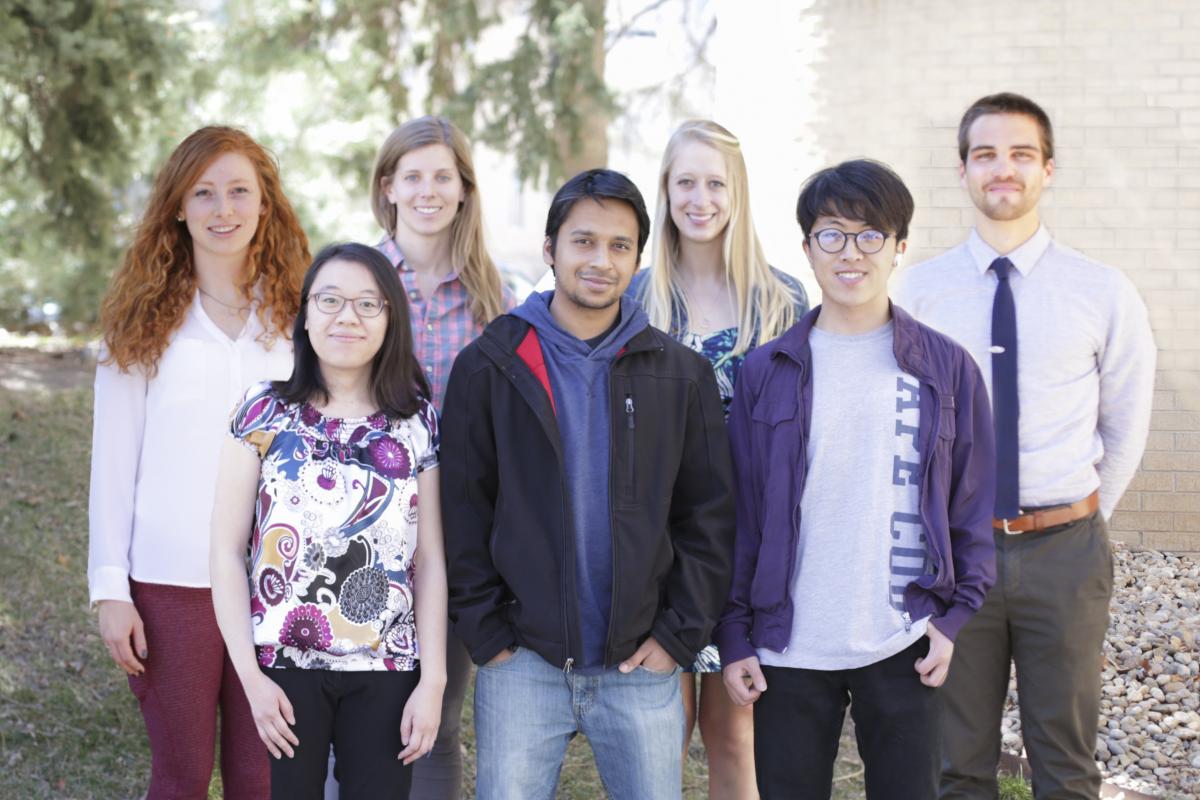 GOLDEN, Colo., March 25, 2016 – Colorado School of Mines won first place in the University of Denver’s Analytics Challenge earlier this month. Sponsored by Daniels College of Business, the competition centered on finding insights from two large data sets about Denver crime over the previous five years.
GOLDEN, Colo., March 25, 2016 – Colorado School of Mines won first place in the University of Denver’s Analytics Challenge earlier this month. Sponsored by Daniels College of Business, the competition centered on finding insights from two large data sets about Denver crime over the previous five years.
Eight students from Mechanical Engineering Professor Alexandra Newman’s Optimizations class, Oluwaseun Ogunmodede, Ryan Thorpe, Margaret Golz, Keshini Keane, Ashwin Mathur, Ke Xiao, Kownoon Her, Melinda Krebs, as well as two of their peers in statistics, Taylor Chott and Colin Eberl-Coe, analyzed data supplied by the Denver Police Department to arrive at suggestions to help the police force be more effective in reducing and responding to crime. The team consisted of graduate students studying chemical and biological engineering, engineering and tech management, mechanical engineering and applied mathematics and statistics.
The Mines team approached the challenge from three different angles. The first approach used a social control theory, the Policing Pill Model, which combines crime prevention education, outreach and law enforcement. The second used an optimization model that created a snapshot of where crimes were happening and the optimal placing of police cars to deter or react to crimes. The final approach focused on statistics to measure the spatial dissonance between where the crimes were happening frequently but street checks were not.
“All the teams were provided the same information,” explained graduate student Eberl-Coe, “times of day and the crimes, as well as where police cars were patrolling. Our analysis, coming from three diverse approaches, is what made the difference. I’m currently taking Dr. Hering’s Spatial Statistics course, which lent itself to the challenge. We were able to use a kernel density estimation, and provide the police force with probability estimations.”
Professor Newman is the director of Operations Research with Engineering (ORwE), an interdisciplinary graduate program that involves mathematically modeling physical systems (both man-made and naturally-occurring) to determine how to optimize their functionality.
As the first place winners, the team received $2,500. The U.S. Air Force Academy took second place, University of Denver third, and University of Colorado-Boulder took fourth.
Contact:
Deirdre Keating, Information Specialist, College of Engineering & Computational Sciences | 303-384-2358 | dkeating@mines.edu
Karen Gilbert, Director of Public Relations, Colorado School of Mines | 303-273-3541 | kgilbert@mines.edu
